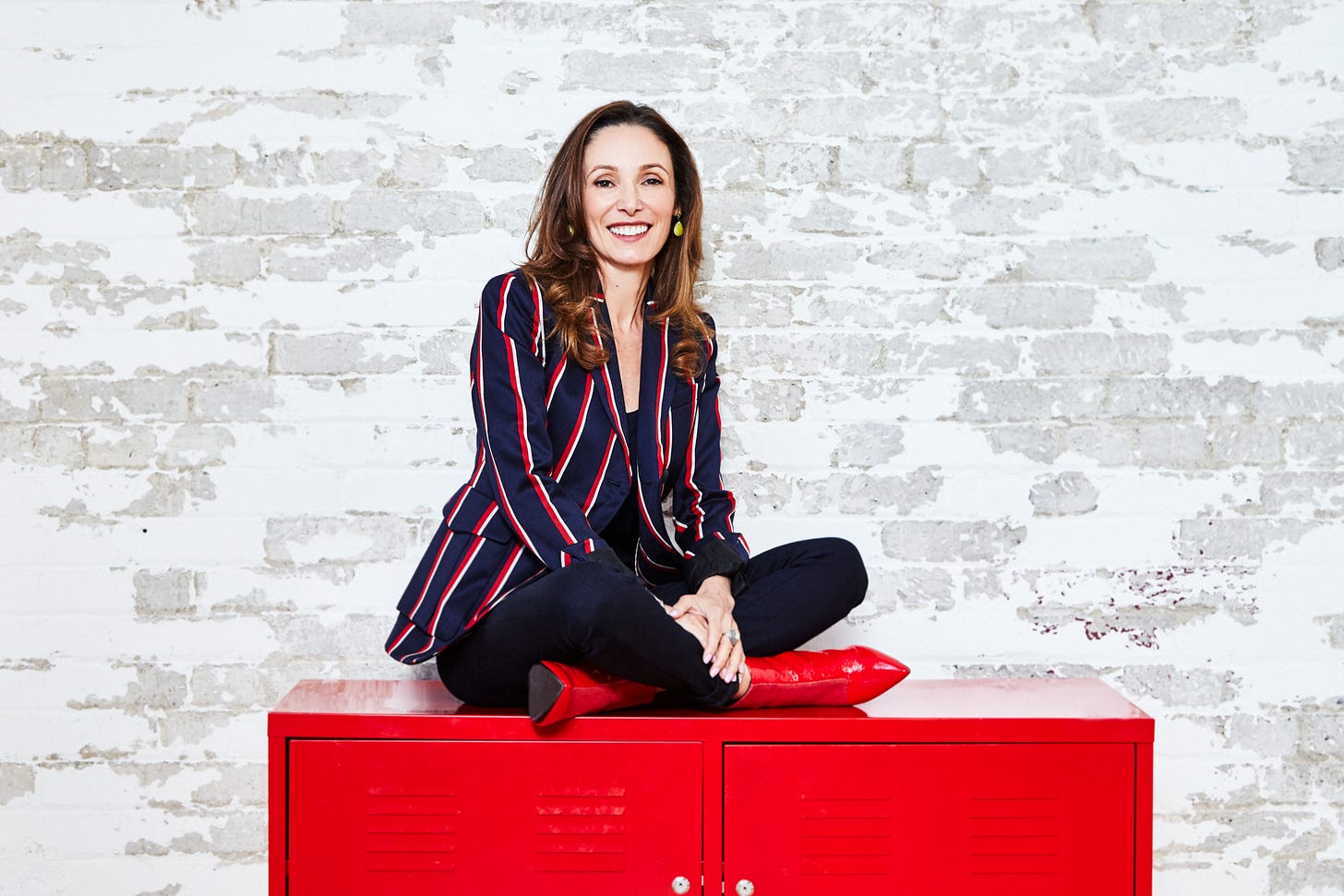The Magic of Tech / The Complexity of Humans.
The Future Does Not Fit in the Containers of the Past. Edition 146.
Technology is a form of magic that despite its downsides create more opportunities for more people and has done so on an ongoing basis.
In 2013 researchers at Oxford University predicted that modern computational technology including large language models would put 47% of all jobs at risk.
10 years later globally we have the lowest unemployment in decades with world-wide GDP and per capita income higher than ever.
Jobs lost. Jobs gained. But all jobs will be changed.
Modern computational and communication technology from mobility to the Internet has changed all jobs. Most of them significantly because of new ways to discover data, increase efficiency, attract new employees and talent, find new suppliers, and means of production or accept payments.
There are three big benefits new technology brings.
a) Efficiency usually through time and or cost savings: It saves time by automating tasks that are often mindless or requires going through large amounts of data. Often because automation can do more faster it saves money.
b) Effectiveness by doing things better or doing things that were impossible: Adobe Suit of tools allows for manipulation of images and video that were impossible. Modern special effects enables creating movies like Star Wars and Avatar.
c) Enablement of “God like Power”: The most powerful technologies give human’s “God Like Power”. Mobile phones enabled billions to be connected to each other, entertainment, and information all the time for the fraction of what one long distance call used to cost.
Take the current when it serves.
From “Julius Caesar” by William Shakespeare:
"We at the height are ready to decline.
There is a tide in the affairs of men
Which, taken at the flood, leads on to fortune;
Omitted, all the voyage of their life
Is bound in shallows and in miseries.
On such a full sea are we now afloat,
And we must take the current when it serves,
Or lose our ventures."
If an individual or business does not wish to be more efficient, effective, and enabled and turns down the benefits of the new technology they are likely to be an individual who is less relevant, less successful, and likely to be out of a job.
There is no choice but to utilize the technology.
Technology has always enabled both the math/analytical/left brain part of work and the magic/creative/right brain part of work.
Excel made finance easier, and Word made writing easier.
PDF’s made publishing easier, and Adobe Photoshop made design easier.
Today GPT allows efficiency in telemarketing centers where AI assists in answering questions while Mid-Journey and Runway ML creates amazing new options for creativity.
A case can be made that jobs will be changed so much that we will be working at many jobs and the future is about work and not jobs.
The choice is in how one uses the technology.
To that end successful individuals and companies use different criteria to decide how much technology to use and where to use it and the most successful will marry the magic of tech with the mystery of humanity to differentiate, innovate and turbo-charge talent.
1. Differentiation: Over time most technologies become commoditized or are available to most businesses for an affordable price. Thus, while using the technology keeps one competitive there is more that is needed to be differentiated. It is differentiation that enables a company to gain market share or charge a higher price.
If two companies were competing and both fully automated their process there would be no difference between their products and services driving them to commodity pricing. A large part of the differentiation between firms is driven by the ideas, storytelling and creativity brought by the different talent to differentiate their company.
While Delta and American use the same technology (aircraft) and resources (airports), and operate under the same rules and regulations (FAA), Delta has been consistently higher rated and more profitable than American because of its talent and culture.
Apple uses production lines at FoxConn which many of their competitors also use and most of the raw materials are similar or purchased from competitors (screens from Samsung or LG) but it is design and branding and storytelling that allows Apple to become the most valuable company in the world.
Most marketing services companies like advertising and media agencies of a given size have access to exactly the same platforms and technology but they differentiate via focus (what they specialize in so they can build unique knowledge, data, or IP), by how they work (how various teams come together to develop solutions) and by level of service or range of capabilities (ability to understand and respond to client needs) and the quality of talent and partners.
2. Innovation: Machines tend to learn and optimize based on pre-sets of learning data or pre-programmed algorithms which do adapt but are often unable to recognize if the landscape has changed either due to competition or new customer needs and so it requires humans to identify these changes and develop new ways to re-program and direct the machines in production.
Most modern technology is an aid to innovation but is not innovative itself.
It was not microscopes and gene-editing technology that enabled a Nobel Prize in Medicine or access to a Particle Collider and Supercomputer that discovers new particles but institutions and talent who challenge the status quo, imagine new answers, and break the mold.
If a machine can enhance the outcome by either doing it cheaper or faster or better it would be a competitive challenge for any company not to optimize and allocate more work to automation especially if the work is repetitive, boring and does not enhance or build skills.
However, most firms whether they are in the product or service sector will always have humans in the mix because it is the mix of computing of robots and the dreams of humans, the logic of data driven, digital silicon objects and the mysteries of feeling driven, analog carbon based humans where new products, services, ideas and creativity will thrive.
3) People and talent will grow more important and not less important: The jobs least impacted by AI are jobs where there is a need for interaction with a person. Some of these involve dentistry or delivery or restaurant service.
Increasingly people will look for people to talk to, guide them, or enhance their experience. Remember how irritated one gets when one cannot reach a human in customer service? Phone trees and automation while they save costs can enrage much more than they engage.
Time after time, many industries from the medical field to the teaching field have tried to create assembly line, industrialized, technology timed and monitored models and doctors have quit, the best teachers have become dispirited.
Employee joy is critical for service, ideas, and innovation and if one finds less purpose, meaning or growth in a job it will hurt the product or service. If people are a cog in the machine, they will find ways to hobble the machine.
Martin Sorrell who runs S4 an advertising firm that buys media recently was asked if S4's adoption of AI “super tools” will threaten jobs at the company, Sorrel said: “Automation poses risks all round but we don't know what those will be. We don't know whether AI will be a net generator or net destroyer of jobs. But the algorithm will be more effective than a 25-year-old media buyer.”
Martin was right in not being sure about AI’s impact on jobs though history suggests it will end up creating more jobs than it will destroy. And, yes an algorithm can be more effective than a 25 year old media buyer but recently a Japanese company replaced its CEO with an AI so technology may also be coming for more senior roles like Martin Sorrel’s then someone who has grown up comfortable with technology. And the reality is that the 25 year old media buyer will still be key because she will be working with the algorithm, modifying the algorithm and augmenting the algorithm versus being eaten by the algorithm.
If a company can replace a person completely with an algorithm their Client does not need the service firm since they can just tap into the algorithm! Which many will do where they can so there has to be other value than replacing people with machines. And every company will be shouting about their “super tools” and it will be a cacophony of noise and and a sea of claims with little differentiation.
Also imagine if you are a young talent why would you join a company where your CEO is hungering to replace you as soon as they can? ( Never mind the fact that 76% of Gen-Z want to work for themselves so the shortage will be getting these talented people to stay on board versus optimizing them away).
The world of media increasingly has been automated with all sorts of advertising and marketing technology and this has allowed for optimization of media that humans alone could not do but the total number of people working in the field has increased and not decreased because the world is not a static place.
As soon as one optimizes a certain type of media there is new break throughs in communication whether it be voice or connected TV’s or gaming which requires new tools, techniques and ideas and a way to integrate across them all and infuse all this optimized media with ideas.
Service businesses involve humans and to be human is to often be unpredictable, incomplete, illogical, and incomprehensible and no machine will be able to do things alone because humans do not compute!
We often make no sense and in it is the wonderful complexity of humanity.
We choose with our hearts and use numbers to justify what we just did. All the AI’s are being optimized for intelligence which is IQ that might in conversation sound like EQ but they do not have a heart.
Combining the magic of tech while embracing the complexity of humanity is will be the key to thriving in a transforming world.
Photography by Lizzie Shepherd
Its the person, stupid: On th latest “What Next?” Teresa Barreira, Publicis Sapient CMO & CCO, explains why the individual Is the new ‘mission critical’, how non-branded content marks the next wave for brand building, and declares the marketing funnel to be dead. She also argues that marketers should embrace generative AI as a competitive way of augmenting their own work and redefining their craft.
Rishad Tobaccowala helps turbo-charge companies, teams and leaders growth by helping them see, think and feel differently. Forty years of experience delivered fast and flexibly with no muss, no fuss, no BS and no handlers. For more about Rishad Tobaccowala click here.










Thank you! Great sentence summarizing this insightful article "Combining the magic of tech while embracing the complexity of humanity will be the key to thriving in a transforming world." Also, tech & AI have been improving education, medicine, agriculture & energy sectors, but a lot more is still needed particularly in underdeveloped countries.
"Most modern technology is an aid to innovation but is not innovative itself."
I believe that sounds like a bicycle in my mind.